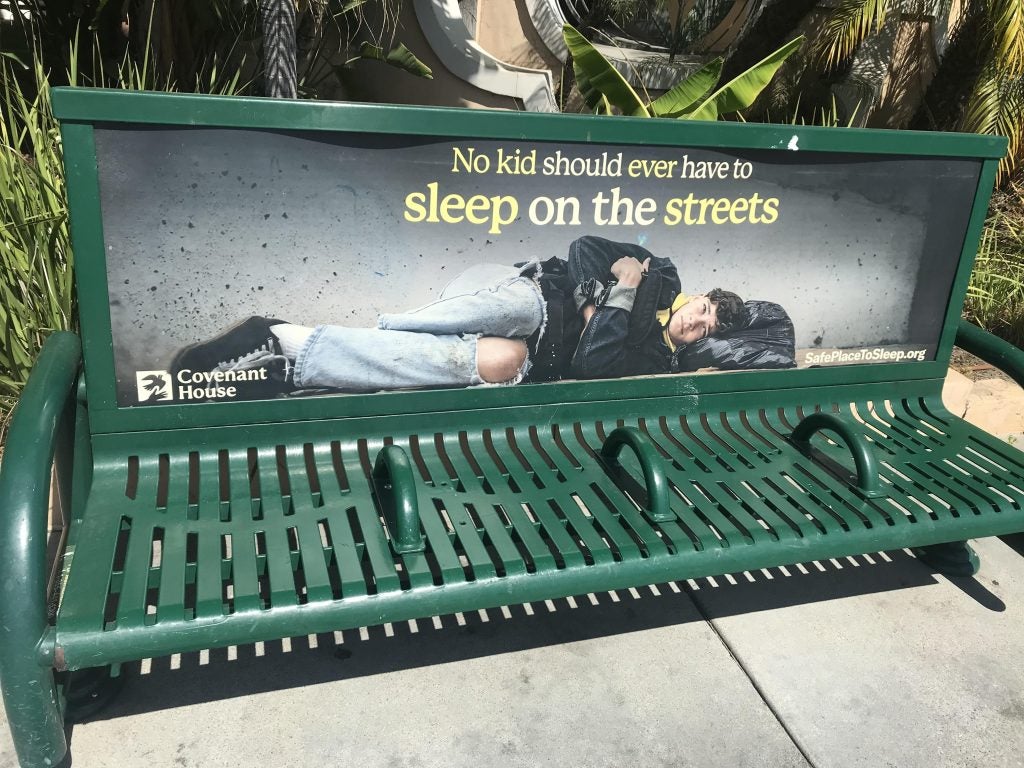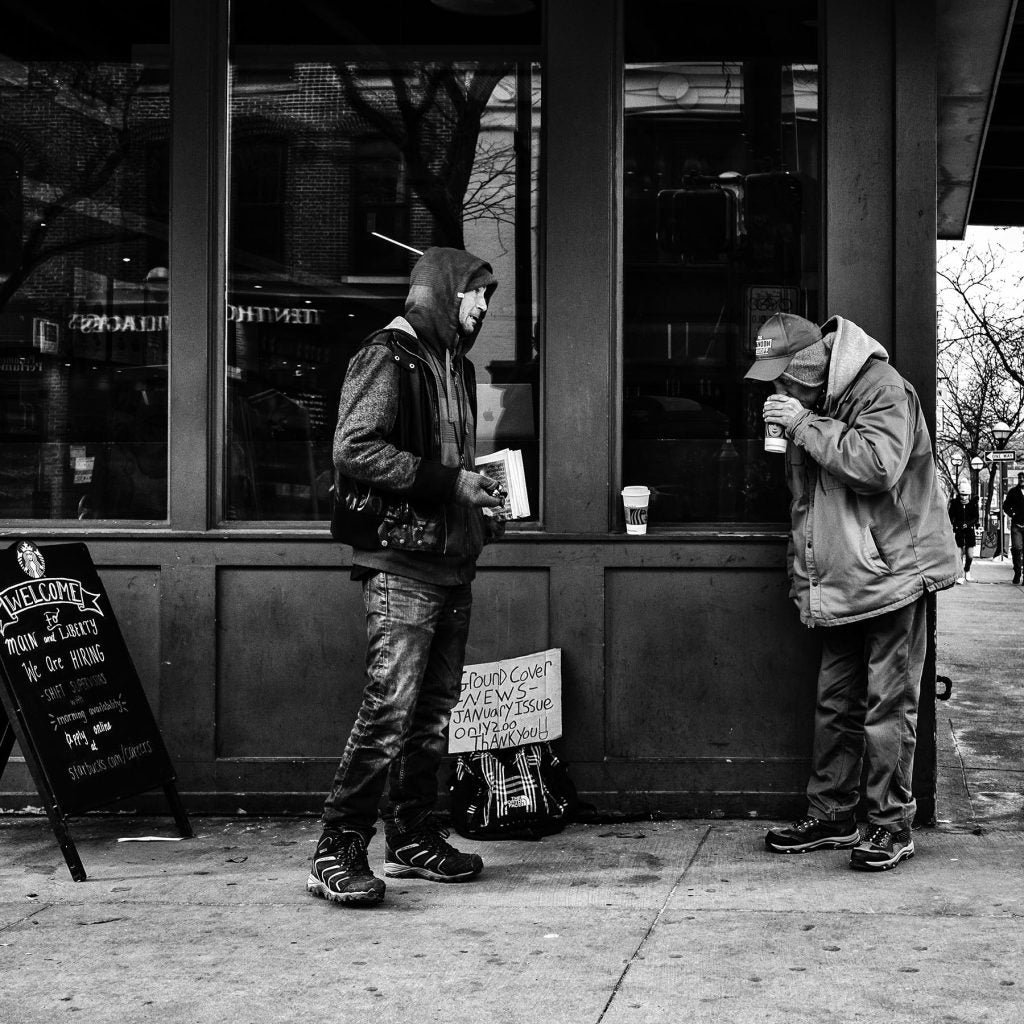There’s a troubling paradox to homelessness.
People dealing firsthand with housing insecurity often live very public lives, unable to relax behind sturdy walls of a steady home. You may eat in public more often than in a private dining room of your own. Maybe you sleep in a local homeless shelter among other homeless people; maybe you sleep on the ground in a public park. You may become largely dependent on public restrooms to satisfy various hygiene needs. You may wash your clothes at the public laundromat, especially if you want to keep that uniform clean so that you can hold onto that job, if you’ve managed to find a job. Under a variety of circumstances, you may run afoul of certain public servants—sometimes law-enforcement officers, sometimes elected officials—who portray you as public hazards, public nuisances, public contaminants who diminish the general population’s quality of life.
At the same time, being homeless also often involves feeling invisible. You say good morning, but the other people on the sidewalk scurry past you without responding, eyes sliding past yours, moving ahead, moving away, as if they’re afraid your lack of housing and economic well-being might be contagious, as if you’re the vector of “bad-luck cooties.” If you’re forced to panhandle, you become even more invisible. You’re the person who wants something for nothing, the societal parasite hungry for money-blood. (Don’t look into the vampire’s eyes!) The other people walk even a little faster, maybe muttering a prayer, maybe muttering terms of abuse, maybe simply stiffening their faces into deadpan expressions. You, helpless, hopeless, may not even seem to exist. You certainly don’t seem to matter.

This section of English 221 (Literature and Writing Outside the Classroom) dedicates itself to exploring ways that these often-overlooked public figures reclaim their dignity in various communities.
One way is that all over the world, organized under the auspices of the International Network of Street Papers (INSP), people facing housing insecurity and poverty can make their voices heard and their perspectives valued by writing, editing, and/or selling street papers, like Ann Arbor’s own Groundcover News. Through grassroots journalism, advocacy, calls for social justice, and practical support, street papers return honor and agency to the people involved in their production and distribution. For instance, every sale by a vendor involves human contact, human communication, a moment shared by people who see and are seen a little more clearly.

Some of the coursework published on this website will intersect with the publishing mission of Groundcover News and other street papers. More broadly, we will attempt to facilitate the process of providing spotlights and platforms for people facing housing insecurity and poverty through individual and group projects that will involve plenty of writing, plenty of multimedia strategizing, and a few useful web-based systems (Canvas, WordPress, and ArcGIS StoryMaps). Please feel free to explore this site to see what we’ve come up with!


